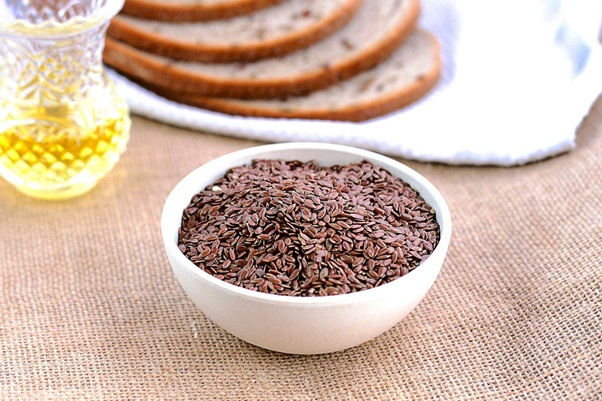- Eat the right foods
- Exercise regularly
- Drink lots of water
- Increase intake of phyto-oestrogens
- Take natural supplements
Menopause most commonly begins in the late 40s and early 50s for the majority of women and is the time that marks the end of your menstrual cycle. The process usually takes a few years and during this time, many women experience a range of symptoms. The symptoms experienced most commonly include hot flashes, mood swings and night sweats. When it comes to treating the symptoms for menopause there are different remedies available. The main treatment is called hormone replacement therapy (HRT) but there are also a variety of natural methods available too. In this article we take a look at the natural ways to alleviate menopause symptoms.
Eat the right foods

The first tip we have to help naturally relieve your menopause symptoms is eating the right food. This tip is broad as there are a variety of foods you can eat, each with different benefits for alleviating your symptoms. Firstly, eating food that is rich in calcium and vitamin D are important due to the fact that hormone changes during menopause can cause the weakening of bones which is one of the reasons women are more prone to osteoporosis in later life than men. Consuming these nutrients are linked to good bone health which lower the risk of fractures caused by weak bones. Foods that are rich in calcium include milk, yogurt and cheese, but you can get calcium from more than dairy sources. Green leafy vegetables such as kale and spinach are full of calcium too. The best source of vitamin D is sunlight, however you can still get vitamin D from oily foods such as fish, eggs or even by taking supplements.
Moreover, eating plenty of fruit and vegetables can help to prevent a number of menopause symptoms. This is due to fruit and veg being low in calories whilst making you feel full helping with weight maintenance which can become particularly difficult during the menopause as your estrogen levels begin to wane and your metabolism slows.
Exercise regularly

There is a variety of evidence to support the fact that exercising regularly comes with a large range of benefits, not just for women going through the menopause. Exercise can help by improving metabolism, energy levels, healthier bones and better sleep. One form of exercise however that studies have demonstrated to be particularly effective as alleviating symptoms of menopause is Pilates. This is said to be due to the fact that Pilates is a low impact exercise that focuses on many of the problems women have issues with during menopause. Here are some benefits of Pilates that help to relieve symptoms:
- Stress relief
- Increased strength
- Better balance and flexibility
- Enhanced sleep
- Better focus and concentration
- Improved mood
If you have not participated in Pilates before, getting started may seem intimidating. Fortunately there are a number of ways you can get involved. If you are completely new to Pilates, there are different options to consider. Watching guided youtube videos may be a good place to start, but if you are open to getting hands on why not join your local pilates studio or even sign up to a Pilates event. One of our favourite Pilates events is Reformer Retreats, a weekend full of Pilates classes and other activities to enhance your stay. What’s more is the retreat is designed to benefit women experiencing menopause symptoms with wellness talks, menopause advice, meditation and spa treatments. All of this is aimed at helping you relax, unwind and take a well deserved break from day to day life.
Drink lots of water

During the menopause, the decrease in estrogen levels and hormone changes has a number of effects. One of these being that many women often experience dryness, another effect is bloating. The best way to help with these symptoms is to increase your water intake. It is recommended that you drink between 8 and 12 glasses of water each day. Water also can help by preventing weight gain and slightly improving your metabolism. Drinking plenty of water goes beyond providing benefits relating to menopausal symptoms, it also helps with the following:
- Aiding digestion
- Normalising blood pressure
- Stabilizing the heartbeat
- Carrying nutrients and oxygen to cells
- Regulating body temperature
Increase intake of phyto-oestrogens

Research also suggests that increasing your intake of phyto-oestrogens can help to keep natural hormones in balance. They do this by blocking the uptake of excess oestrogen and raise low levels when needed. They can be found in a number of plant based foods which include:
- Soya milk
- Soya flour
- Tofu
- Pumpkin seeds
- Crushed flaxseeds
- Sesame seeds
- Sunflower seeds
Take natural supplements

Many women like to take a range of natural supplements and remedies in an attempt to alleviate menopause symptoms. Everyone experiences different results and some supplements have been shown to be more effective than others. Common natural supplements include phyto-oestrogens which as discussed previously can be found in a range of foods. Other supplements include black cohosh which is particularly popular with studies suggesting that this supplement is particularly effective at reducing hot flashes. Other commonly used remedies include probiotics, prebiotics, primrose oil, vitamin D and more.
